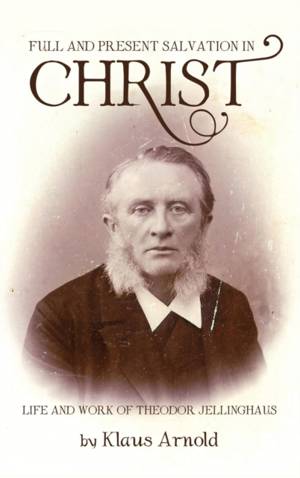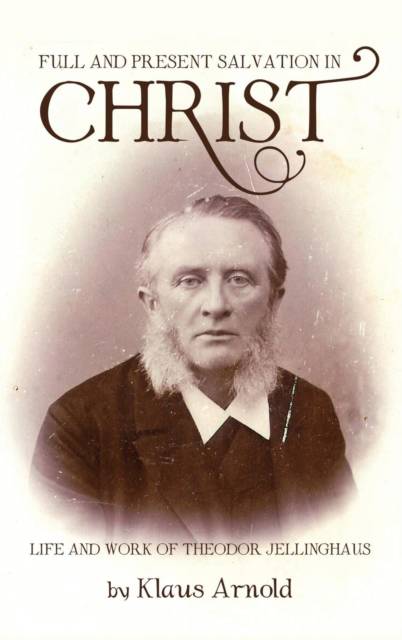
- Retrait en 2 heures
- Assortiment impressionnant
- Paiement sécurisé
- Toujours un magasin près de chez vous
- Retrait gratuit dans votre magasin Club
- 7.000.0000 titres dans notre catalogue
- Payer en toute sécurité
- Toujours un magasin près de chez vous
Full and Present Salvation in Christ
Life and Work of Theodor Jellinghaus
Klaus Arnold
Livre relié | Anglais
69,45 €
+ 138 points
Format
Description
Theodor Jellinghaus (1841-1912), theologian and leader of the Heiligungsbewegung (Holiness Movement), was one of the fathers of the Gemeinschaftsbewegung (Fellowship Movement) in Germany, a new organized expression of the Pietist tradition in nineteenth-century German Protestantism. The key event for the life and work of Jellinghaus was his participation in the convention on Christian holiness in England in 1874. He wanted to bring the new insights he gained there to revive the Protestant and Pietist traditions in the land of the Reformation. Jellinghaus believed that the doctrine of sanctification by faith in Jesus Christ, which he had heard in England, was an indispensable consequence of and necessary accompaniment to a clear doctrine of justification. His special concern in the Gemeinschaftsbewegung was the education of laypersons. The last phase of his life was characterized by crisis and illness, which were related to each other and directly and indirectly led to his so-called recantation. We can only do justice to the overall persona of Jellinghaus if we differentiate between the former (healthy) and later (ill) Jellinghaus. He has to be viewed in the contradictions and tensions within the development of the Heiligungsbewegung and the Gemeinschaftsbewegung as well as his theological teachings. This book is the first comprehensive treatment of Jellinghaus, which not only focuses on his doctrine of sanctification, but assesses his overall life and work, that is, his theological system and personal involvement in and contribution to the development of the Heiligungsbewegung and Gemeinschaftsbewegung in Germany.
Spécifications
Parties prenantes
- Auteur(s) :
- Editeur:
Contenu
- Nombre de pages :
- 212
- Langue:
- Anglais
Caractéristiques
- EAN:
- 9781532615030
- Date de parution :
- 11-04-18
- Format:
- Livre relié
- Format numérique:
- Genaaid
- Dimensions :
- 152 mm x 229 mm
- Poids :
- 453 g

Seulement chez Librairie Club
+ 138 points sur votre carte client de Librairie Club
Les avis
Nous publions uniquement les avis qui respectent les conditions requises. Consultez nos conditions pour les avis.






